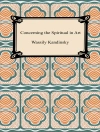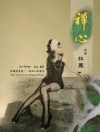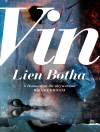Provoking the Field invites debate on, and provides an essential resource for, transnational arts-based scholars engaged in critical analyses of international visual arts education and its enquiry in doctoral research. Divided into three parts – doctoral processes, doctoral practices and doctoral programmes – the volume interrogates education in both formal and informal learning environments, ranging from schools to post-secondary institutions to community and adult education.
This book brings together a global range of authors to examine visual arts Ph Ds using diverse theoretical perspectives; innovative arts and hybrid methodologies; institutional relationships and scholarly practices; and voices from the field in the form of site-specific cases. A compendium of leading voices in arts education, Provoking the Field provides a diverse range of perspectives on arts enquiry, and a comprehensive study of the state of visual arts Ph Ds in education.
Inhaltsverzeichnis
Introduction
Part 1: Provoking Doctoral Processes
Chapter 1: The Knowledge Creation Spectrum
Michael Biggs
Chapter 2′ Interpolation and Relationality: Extending the Field through Creative Arts and Indigenous Research Approaches
Estelle Barrett
Chapter 3: Transformative Interventions: Creative Practices in an Education Doctorate Programme
Jeff Adams and Emma Arya-Manesh
Chapter 4: Art-Based Action Research: Participatory Art Education Research for the North
Timo Jokela, Maria Huhmarniemi and Mirja Hiltunen
Chapter 5: Researching the Unknown through Arts-Based Research to Promote Pedagogical Imagination
Fernando Hernández-Hernández
Chapter 6: Taking Shape: Visual Appearance and Theory
Brooke Hofsess, Karina Riddett and Richard Siegesmund
Part 2: Provoking Doctoral Practices
Chapter 7: When is a Red Shoe not a Red Shoe? Conceptual Framing and the Consequences for the ‚Object‘ in Virtual Research
Barbara Bolt
Chapter 8: How Can Artistic Research (Still) Be Disruptive?
Natalia Calderón
Chapter 9: Artmaking as Entanglement: Conceptualising Agency through a Diffractive Methodology
Ramya Ravisankar
Chapter 10: A/R/Tographic Rhythm: Opening Conversations of Resistance and Accommodation as Scholarly Provocation
Anita Sinner, Verónica Sahagún Sánchez, Jennifer Wicks and Darlene St. Georges
Chapter 11: To Reach the Unreached: Rhythms of Issues, Reflections, Writings and Art Practices
Jo Chiung Hua Chen
Chapter 12: Artistic Event as Pedagogy
Belidson Dias and Tatiana Fernández
Chapter 13: Parsing Creative Influence through Comparative Visual Research Methods
Justin B. Makemson
Chapter 14: Artworks in Residence: Semiosis, Transmediation and ZPD
Julie Wren, Susan Wright and Marnee Watkins
Chapter 15: Connections, Disruptions and Reconfigurations: The Implications of Aesthetic Experience for Doctoral Research in the Visual Arts
Boyd White and April Mandrona
Part 3: Provoking Doctoral Programmes
Chapter 16: Navigating Ethics Protocols for Artistic Research: Strategies for Graduate Student Researchers
Lorrie Blair
Chapter 17: Examining the Case for Artful Participatory Inquiry in the Visual Art Education Doctorate
Kathryn Grushka and Allyson Holbrook
Chapter 8: Some Iberian Perspectives about Arts-Based and Artistic Research in Arts Education
Teresa Torres de Eça and Ângela Saldanha
Chapter 19: Finnish Arts-Based and Artistic Dissertations in Context: Explorations, Interventions and Glocal Interpretations
Mira Kallio-Tavin and Kevin Tavin
Chapter 20: Barrier or Catalyst: Cross-Cultural and Language Issues for Doctoral Researchers in Japan
Toshio Naoe
Chapter 21: A Research Profile of Visual Arts Theses in Education in Turkey
Suzan Duygu Bedir Eristi
Chapter 22: Qualities of Artmaking in Arts-based Educational Research Dissertations
Alison Shields and Rita L. Irwin
Notes on Contributors
Index
Über den Autor
Rita L. Irwin (Ed.D.) is distinguished university scholar and professor of art education and curriculum studies at the University of British Columbia, Vancouver, Canada. She was a classroom teacher and arts specialist before embarking upon an academic career. While her research interests include teacher education, curriculum practices and sociocultural issues, she is best known for her work in expanding how we might imagine and conduct practice-based research methodologies like a/r/tography through collaborative and community-based collectives.
Contact: University of British Columbia, Department of Curriculum and Pedagogy, 2125 Main Mall, Vancouver, British Columbia, V7E 2Y3, Canada.












